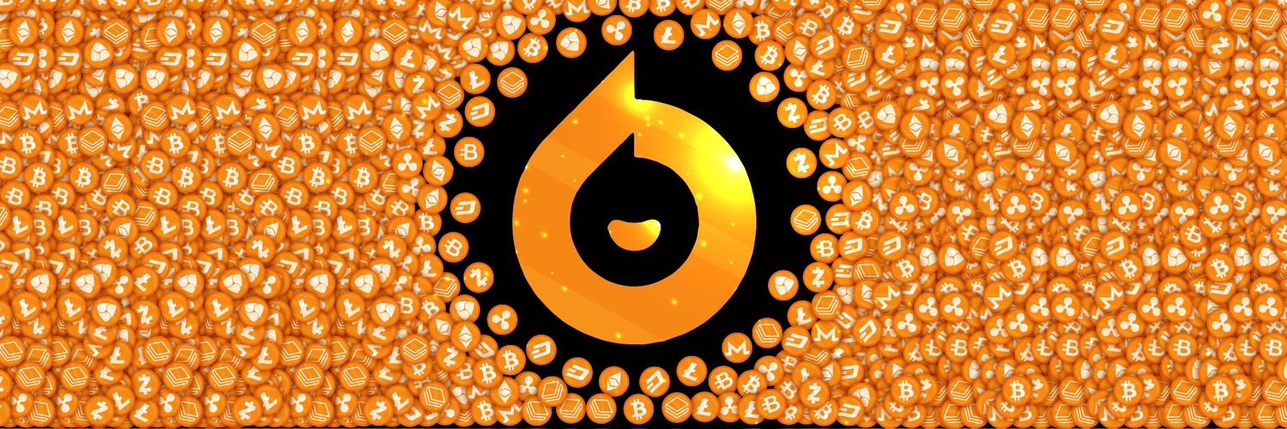Bitget:全球日交易量排名前 4!
BTC 市占率63.37%
Bitget 新幣上架 : Pi Network
BTC/USDT$94268.86 (-0.50%)恐懼與貪婪指數61(貪婪)
山寨季指數:0(比特幣季)
盤前交易幣種SIGN比特幣現貨 ETF 總淨流量:+$380M(1 天);+$3.14B(7 天)。Bitget 新用戶立享 6,200 USDT 歡迎禮包!立即領取
到 Bitget App 隨時隨地輕鬆交易!立即下載
Bitget:全球日交易量排名前 4!
BTC 市占率63.37%
Bitget 新幣上架 : Pi Network
BTC/USDT$94268.86 (-0.50%)恐懼與貪婪指數61(貪婪)
山寨季指數:0(比特幣季)
盤前交易幣種SIGN比特幣現貨 ETF 總淨流量:+$380M(1 天);+$3.14B(7 天)。Bitget 新用戶立享 6,200 USDT 歡迎禮包!立即領取
到 Bitget App 隨時隨地輕鬆交易!立即下載
Bitget:全球日交易量排名前 4!
BTC 市占率63.37%
Bitget 新幣上架 : Pi Network
BTC/USDT$94268.86 (-0.50%)恐懼與貪婪指數61(貪婪)
山寨季指數:0(比特幣季)
盤前交易幣種SIGN比特幣現貨 ETF 總淨流量:+$380M(1 天);+$3.14B(7 天)。Bitget 新用戶立享 6,200 USDT 歡迎禮包!立即領取
到 Bitget App 隨時隨地輕鬆交易!立即下載



X Doge 價格X
未上架
報價幣種:
TWD
數據來源於第三方提供商。本頁面和提供的資訊不為任何特定的加密貨幣提供背書。想要交易已上架幣種? 點擊此處
NT$0.{6}2909-0.26%1D
價格圖表
X Doge價格走勢圖 (X/TWD)
最近更新時間 2025-04-27 03:44:29(UTC+0)
市值:--
完全稀釋市值:--
24 小時交易額:NT$1,263.63
24 小時交易額/市值:0.00%
24 小時最高價:NT$0.{6}2987
24 小時最低價:NT$0.{6}2886
歷史最高價:NT$0.2084
歷史最低價:NT$0.{8}5632
流通量:-- X
總發行量:
10,000,000,000,000X
流通率:0.00%
最大發行量:
--X
以 BTC 計價:0.{13}9475 BTC
以 ETH 計價:0.{11}4928 ETH
以 BTC 市值計價:
--
以 ETH 市值計價:
--
合約:
0xA208...e1746Cd(BNB Smart Chain (BEP20))
您今天對 X Doge 感覺如何?
注意:此資訊僅供參考。
X Doge (X) 簡介
X Doge幣的詳細引導:為什麼需要關注
隨著加密貨幣市場的迅速增長和發展,越來越多的加密貨幣正在被開發並引起大眾的關注。X Doge Token是其中一種值得我們注意的加密貨幣。那麼,它到底是什麼?
什麼是X Doge Token?
X Doge幣是一種基於區塊鏈技術的加密貨幣。它利用區塊鏈的分散化特性,讓用戶可以進行安全的支付和交易,並且避免傳統銀行系統可能出現的問題。
X Doge Token的特性
X Doge幣的獨特之處在於它結合了許多當前最流行的加密貨幣的優點。鑑於以下特性,X Doge幣提供了一個非常具有吸引力的可能性:
-
分散化: 因為X Doge幣是基於區塊鏈的,所以它是分散的。這意味著沒有央行或政府能控制它。
-
安全性: X Doge幣提供了一種比傳統支付系統更安全的方式來傳送和接收貨幣。
-
快速交易: X Doge幣的交易速度很快,可以在幾秒鐘內完成交易,這比傳統銀行系統要快得多。
-
全球可用: X Doge幣可以在全球範圍內使用,不受任何地理限制。
為什麼需要關注X Doge Token
在大多數人用加密貨幣進行投資的情況下,X Doge幣提供了一種新的投資方式。這種新的投資方式讓人們有一種新的刺激感,並提高了人們對區塊鏈技術的認識。另外,由於它的許多特性,X Doge幣也被視為是投資者及用戶的一種可行選擇。
總的來說,X Doge幣是一種前景看好的分散化加密貨幣。它提供的功能和潛力吸引了無數的用戶和投資者。無論是從投資者的角度看,還是從用戶的角度看,X Doge幣都有它獨特的吸引力,值得我們對它保持關注。
X Doge 的 AI 分析報告
今日加密市場熱點查看報告
今日X Doge即時價格TWD
今日X Doge即時價格為 NT$0.{6}2909 TWD,目前市值為 NT$0.00。過去 24 小時內,X Doge價格跌幅為 0.26%,24 小時交易量為 NT$1,263.63。X/TWD(X Doge兌換TWD)兌換率即時更新。
X Doge價格歷史(TWD)
過去一年,X Doge價格上漲了 -23.00%。在此期間,兌TWD 的最高價格為 NT$0.2084,兌TWD 的最低價格為 NT$0.{6}1411。
時間漲跌幅(%) 最低價
最低價 最高價
最高價 
 最低價
最低價 最高價
最高價 
24h-0.26%NT$0.{6}2886NT$0.{6}2987
7d+16.61%NT$0.{6}2441NT$0.{6}3054
30d-3.53%NT$0.{6}2128NT$0.{6}3115
90d-34.69%NT$0.{6}1966NT$0.2084
1y-23.00%NT$0.{6}1411NT$0.2084
全部時間-94.07%NT$0.{8}5632(2022-10-07, 2 年前 )NT$0.2084(2025-03-11, 47 天前 )
X Doge的最高價格是多少?
X Doge兌換TWD的歷史最高價(ATH)為 NT$0.2084,發生於 2025-03-11。相較於價格回撤了 100.00%。
X Doge的最低價格是多少?
X Doge兌換TWD的歷史最低價(ATL)為 NT$0.{8}5632,發生於 2022-10-07。相較於X Doge歷史最低價,目前X Doge價格上漲了 5065.92%。
X Doge價格預測
X 在 2026 的價格是多少?
根據X的歷史價格表現預測模型,預計X的價格將在 2026 達到 NT$0.{6}3231。
X 在 2031 的價格是多少?
2031,X的價格預計將上漲 +14.00%。 到 2031 底,預計X的價格將達到 NT$0.{6}8146,累計投資報酬率為 +179.07%。
常見問題
X Doge 的目前價格是多少?
X Doge 的即時價格為 NT$0(X/TWD),目前市值為 NT$0 TWD。由於加密貨幣市場全天候不間斷交易,X Doge 的價格經常波動。您可以在 Bitget 上查看 X Doge 的市場價格及其歷史數據。
X Doge 的 24 小時交易量是多少?
在最近 24 小時內,X Doge 的交易量為 NT$1,263.63。
X Doge 的歷史最高價是多少?
X Doge 的歷史最高價是 NT$0.2084。這個歷史最高價是 X Doge 自推出以來的最高價。
我可以在 Bitget 上購買 X Doge 嗎?
可以,X Doge 目前在 Bitget 的中心化交易平台上可用。如需更詳細的說明,請查看我們很有幫助的 如何購買 指南。
我可以透過投資 X Doge 獲得穩定的收入嗎?
當然,Bitget 推出了一個 機器人交易平台,其提供智能交易機器人,可以自動執行您的交易,幫您賺取收益。
我在哪裡能以最低的費用購買 X Doge?
Bitget提供行業領先的交易費用和市場深度,以確保交易者能够從投資中獲利。 您可通過 Bitget 交易所交易。
X Doge持幣分布集中度
巨鯨
投資者
散戶
X Doge地址持有時長分布
長期持幣者
游資
交易者
coinInfo.name(12)即時價格表

全球X Doge價格
目前X Doge用其他貨幣計價是多少?最近更新時間:2025-04-27 03:44:29(UTC+0)
X 兌換 MXN
Mexican Peso
Mex$0X 兌換 GTQGuatemalan Quetzal
Q0X 兌換 CLPChilean Peso
CLP$0X 兌換 HNLHonduran Lempira
L0X 兌換 UGXUgandan Shilling
Sh0X 兌換 ZARSouth African Rand
R0X 兌換 TNDTunisian Dinar
د.ت0X 兌換 IQDIraqi Dinar
ع.د0X 兌換 TWDNew Taiwan Dollar
NT$0X 兌換 RSDSerbian Dinar
дин.0X 兌換 DOPDominican Peso
RD$0X 兌換 MYRMalaysian Ringgit
RM0X 兌換 GELGeorgian Lari
₾0X 兌換 UYUUruguayan Peso
$0X 兌換 MADMoroccan Dirham
د.م.0X 兌換 AZNAzerbaijani Manat
₼0X 兌換 OMROmani Rial
ر.ع.0X 兌換 SEKSwedish Krona
kr0X 兌換 KESKenyan Shilling
Sh0X 兌換 UAHUkrainian Hryvnia
₴0- 1
- 2
- 3
- 4
- 5
購買其他幣種
在哪裡可以購買加密貨幣?
影片部分 - 快速認證、快速交易

如何在 Bitget 完成身分認證以防範詐騙
1. 登入您的 Bitget 帳戶。
2. 如果您是 Bitget 的新用戶,請觀看我們的教學,以了解如何建立帳戶。
3. 將滑鼠移到您的個人頭像上,點擊「未認證」,然後點擊「認證」。
4. 選擇您簽發的國家或地區和證件類型,然後根據指示進行操作。
5. 根據您的偏好,選擇「手機認證」或「電腦認證」。
6. 填寫您的詳細資訊,提交身分證影本,並拍攝一張自拍照。
7. 提交申請後,身分認證就完成了!
加密貨幣投資(包括透過 Bitget 線上購買 X Doge)具有市場風險。Bitget 為您提供購買 X Doge 的簡便方式,並且盡最大努力讓用戶充分了解我們在交易所提供的每種加密貨幣。但是,我們不對您購買 X Doge 可能產生的結果負責。此頁面和其包含的任何資訊均不代表對任何特定加密貨幣的背書認可,任何價格數據均採集自公開互聯網,不被視為來自Bitget的買賣要約。
X Doge評級
社群的平均評分
4.4
此內容僅供參考。
Bitget 觀點

Crypto_Inside
59分鐘前
📢 Bitcoin ; Glassnode stated in a recent X post on April 25 that Open Interest (OI) in Bitcoin perpetual swaps increased to 218,000 BTC, a 15.6% increase from the beginning of March.
This increase in open interest corresponds with more leverage, which raises the possibility of market instability through liquidations or stop-outs in response to market action.
Long-term market optimism is typically shown by an increase in Open Interest during a price upswing. Glassnode's research, however, has shown the opposite situation. #BTC
$BTC $ETH $SOL $XRP $PI $WCT $EPT $BGB
BTC-0.38%
X-3.87%

Bpay-News
2小時前
Imran Khan: AMMs are competing to become infrastructure for token launches
Imran Khan, founding partner of Alliance DAO, wrote on the X platform that an important but widely overlooked competition is underway among AMMs, with the goal of becoming the default infrastructure for token launch platforms. This competition involves differentiated bond curves, anti-frontrunning mechanisms, and a refined fee generation framework. Imran Khan pointed out that AMMs that successfully occupy this market may establish a moat and bring in considerable revenue, but whether they can form a long-term advantage remains to be seen. It is expected that AMMs will design mechanisms to lock in launch platforms for as long as possible.
X-3.87%
DAO-1.40%

Bpay-News
3小時前
Michael Saylor: MSTR has achieved $5.1 billion in Bitcoin gains through financial operations so far this year
Strategy founder Michael Saylor posted on the X platform that MSTR’s financial operations have generated $5.1 billion in Bitcoin revenue so far this year.
X-3.87%
S-1.42%

Mingo
3小時前
Day 3/x
X-3.87%

sxontz
5小時前
🚀 JUST HODL: ETH HOLDERS, YOUR REWARDS ARE COMING! 🚀
In crypto, only two kinds of people exist:
❌ Those who panic and sell...
✅ Those who BELIEVE and WIN.
Look at Ethereum’s 🔥 quarterly returns history from 2016–2025:
Massive pumps after every major dip!
+104% in Q4 2020
+142% in Q4 2017
+160% in Q1 2021
Even the average and median returns are screaming:
"HODL and you win!"
THE MESSAGE IS CLEAR:
Diamond hands get rewarded! 💎✋
Paper hands stay broke. 🧻
🧠 BELIEVE IN SOMETHING.
Ethereum isn’t just a coin. It's the foundation of the future:
DeFi 🏦
NFTs 🎨
Layer 2 Scaling 🚀
Real-world adoption 🌍
The next bull run will be legendary — and only the believers will be there to witness it.
JUST. HODL. ETH.
Follow me for more alpha drops, crypto wisdom, and real ones who believe in the long game!
👉 Smash that follow!
👉 Retweet if you’re a true HODLER!
#HODL #ETH #Crypto #Ethereum #Bullish
Would you also like a short X (Twitter) thread version too? Threads get even more engagement and followers!
Want me to quickly draft that too? (It’ll just take 2-3 extra minutes.)
ALPHA-3.74%
X-3.87%
相關資產
相近市值
在所有 Bitget 資產中,這8種資產的市值最接近 X Doge。
關於X Doge的更多資訊

































